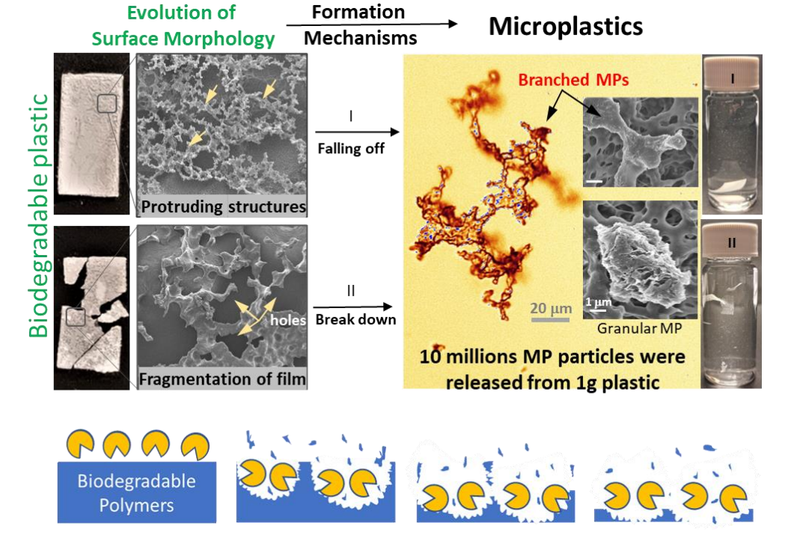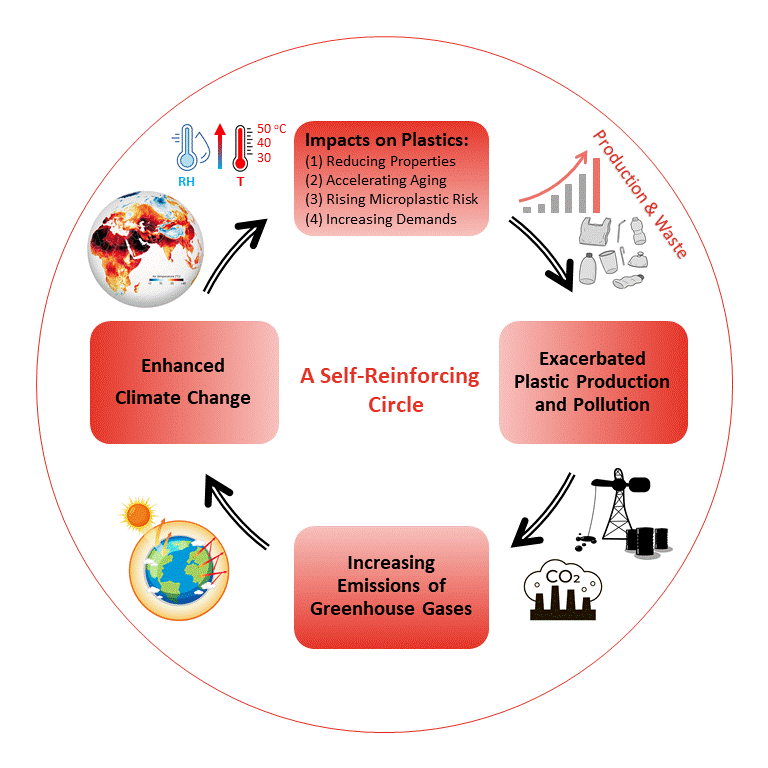Xinfeng Wei
Researcher
Researcher
About me
My research interest lies at the intersection of polymer science and environmental studies, with a particular focus on plastic pollution, especially microplastics, the development and sustainable use of environmentally friendly polymers, and the complex interactions between polymers and climate change. My overall goal is to address some of the most pressing global challenges of our time, such as plastic pollution, climate change, and sustainable development.
Plastic Pollution and Microplastics:
On-going project:BIOdegradable plastics in soil environment: Formation and accumulation risks of MICROplatics (BIO-MICRO), Formas, 2024 to 2027
My primary focus encompasses a comprehensive understanding of the entire lifecycle of plastics, from production and application to waste management. This includes identifying the origins and determining the ultimate disposition of plastic waste in diverse environments. A key goal is to devise approaches for reducing, reusing, and recycling plastic waste, thereby fostering a circular economy within the plastic industry. Additionally, I am deeply invested in investigating the sources, transport pathways, and eventual fate of microplastics across various ecosystems, along with their impacts. A main part of my research is dedicated to assessing the risk and mechanisms of microplastic formation in different environments. I am also working on developing methodologies for effectively monitoring and quantifying microplastic pollution, as well as identifying and implementing strategies to curtail their environmental release.

News: Can biodegradable polymers make microplastics?
Environmentally Friendly Polymers:
On-going project:Waste to Worth: Innovating Rubber Compounds for Injection Moulding from Forestry Residue, Vinnova, 2024-2025
The plastic industry is undergoing a sustainable transition from traditional plastics to materials with a lower carbon footprint and greater environmental friendliness. A central aspect of my research involves developing and processing bio-based or biodegradable polymers such as lignin, wheat gluten, and biopolyesters and their composites with specific properties tailored to various applications. Additionally, my research aims to devise effective waste management strategies for these materials and to thoroughly investigate their biodegradability and the environmental impact of their degradation in diverse settings.
Interactions Between Polymers and Climate Change:
On-going project:To Understand and Predict the Impacts of Warming Climates on Plastics: Accelerated Degradation and Environmental Implications (WarmPlastix), VR, Swedish Research Council, 2025-2028
Global warming and climate change are intensifying in recent years, leading to increasingly profound implications for ecosystems, people, and societies. How climate change affects the properties and fate of polymers in different applications and environments remains unknown. The goal is to enhance our understanding of plastic resilience in changing climates and provide strategies to mitigate associated economic and environmental repercussions, fostering a more sustainable and resilient future.
Xin-Feng Wei, Mikael S. Hedenqvist. Heatwaves hasten polymer degradation and failure.Science381,1058-1058(2023).DOI:10.1126/science.adj4036
XF Wei, W Yang, MS Hedenqvist Plastic pollution amplified by a warming climate, Nature Communications 15, 2025
News: Heatwaves hasten polymer failure
Global warming and plastic pollution create vicious circle
Global warming and plastic pollution entwined in vicious circle
Methodological Approach:
My approach combines experimental research, including laboratory studies and fieldwork, with theoretical modeling and data analysis. I am keen on collaborating with researchers from different disciplines, as well as engaging with industry stakeholders and policymakers, to ensure that my research has practical applications and can inform effective environmental policies.